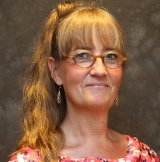
IPA Communications are delighted that on International Women’s Day, Alexandra Billinghurst, Vice President of the International Psychoanalytical Association, has paused from her busy schedule to share her experience as a woman and psychoanalyst and to reflect on contemporary psychoanalysis and its relevance to this year’s theme #BeBoldForChange.
 Alexandra, if you were able to time travel and talk to your 16 year old self what would you want to say about the changing position of women in society and in your chosen profession?
Alexandra, if you were able to time travel and talk to your 16 year old self what would you want to say about the changing position of women in society and in your chosen profession?
“I was a radical at that age and think my 16 year old self would be disappointed to learn how much there was still to be done to address the challenges faced by women and others with less power in society.
She would be surprised too about my choice of career.
So I would like to explain to her how my life journey connects with that radical self.
Freud can be seen as a man of his time. His views on women shaped by the norms of his society and through the lens of men with power. Although he did too recognise that he didn’t understand what it was that women wanted.
Yet even in the early days of psychoanalysis, compared with other professions, it was a field where women could and did influence the direction of knowledge and practice. These women pioneers have profoundly affected the fields of mental health and child development.
And it remains today a profession which evolves and grows addressing the most pressing issues facing society.
For me, International Women’s Day, in standing for women’s rights, stands also for human rights more broadly. Psychoanalysis is for me about human rights at a very profound level.
So being an analyst and teacher I am fulfilling my radical 16 year old self’s commitment to working at the leading edge of societal change.
------
“Yet even in the early days of psychoanalysis, compared with other professions, it was a field where women could and did influence the direction of knowledge and practice. These women pioneers have profoundly affected the fields of mental health and child development.”
Alexandra Billinghurst
-----
Could you tell us a little more about that ? You talk , I know, about Psychoanalysis being a revolutionary force? This is obviously very relevant to this year’s theme of #BeBoldForChange.
From the beginning, Psychoanalysis, with its focus on the unconscious, represented a revolutionary and to some a disturbing way to look at the forces that drive individuals, groups and societies.
Whether encountering analysis as an individual or in an organisational or societal setting, confronting what is under the surface, undiscussable, unknown is profoundly liberating opening up opportunities for change at all 3 levels.
It takes courage or boldness to work with what is revealed. To see reality, to see what shapes norms and therefore be free to change them.
This is so relevant today when movements across the globe seem to be in the grip of “a fear of the other”.
I hear that Psychoanalysis is enjoying a renaissance why do you think that is so?
“I think that we are at a point in history where people are looking for solutions to deep seated ills and the quick fix cures haven’t addressed needs for effectiveness. Psychoanalysis stands for the hope that transformation and change is possible.”
#IWD2017